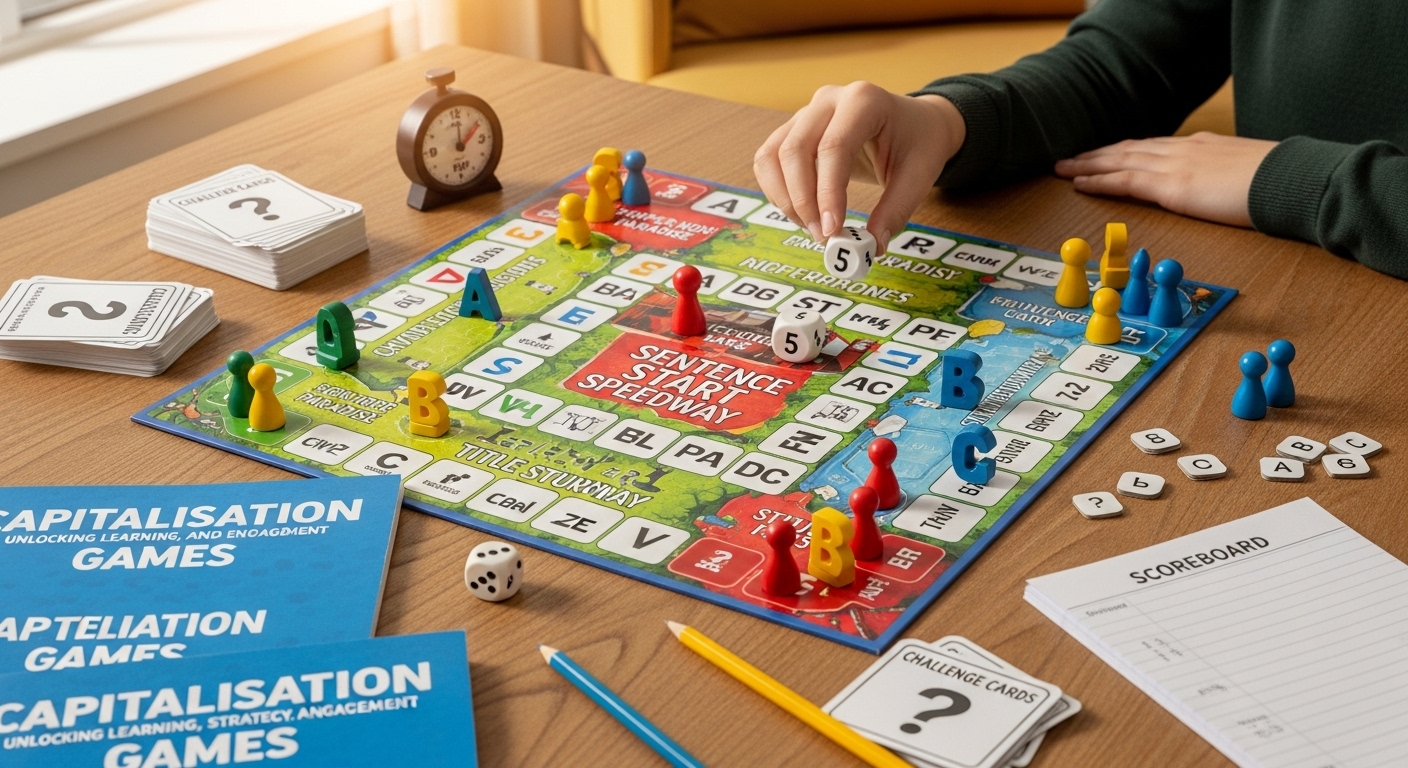In today’s dynamic world of education and professional development, mastering foundational skills is no longer limited to rote memorization. The most effective learning methods are those that combine engagement with strategy, helping individuals internalize concepts while enjoying the process. Among these innovative approaches, capitalisation games have emerged as a powerful tool for teaching grammar, punctuation, and proper writing practices in an interactive way.
This article explores the significance of capitalisation games, their impact on learning, and why they are redefining how students, educators, and professionals approach the study of language.
What Are Capitalisation Games?
Capitalisation games are structured activities, exercises, or digital tools designed to help learners identify and correctly apply capitalization rules in English. These games transform a traditional grammar lesson into an interactive experience, combining learning with entertainment.
By turning a foundational skill into a challenge or competition, learners engage more deeply and retain knowledge more effectively. Whether in a classroom, online platform, or self-study format, capitalisation games provide both instruction and reinforcement.
Why Capitalisation Matters
Understanding capitalization is critical in both academic and professional communication. Proper use of uppercase letters:
-
Conveys clarity and professionalism.
-
Ensures correct interpretation of proper nouns, titles, and sentences.
-
Builds confidence in writing, which is essential in reports, emails, and presentations.
Yet traditional methods of teaching capitalization can feel tedious. This is where capitalisation games excel—they provide a fun, interactive alternative that transforms learning from a chore into a challenge.
The Philosophy Behind Capitalisation Games
At their core, capitalisation games reflect a learning philosophy rooted in engagement, repetition, and immediate feedback:
-
Interactive Learning: Students actively participate rather than passively read rules.
-
Immediate Feedback: Correct or incorrect answers are highlighted instantly, reinforcing learning in real time.
-
Gamification: Points, levels, and challenges motivate learners to strive for mastery.
This philosophy mirrors modern educational approaches that emphasize active participation over passive absorption, helping learners develop practical, applicable skills.
How Capitalisation Games Enhance Engagement
Engagement is the key to effective learning. Capitalisation games accomplish this in multiple ways:
-
Competition: Learners are motivated to improve their scores against peers or previous attempts.
-
Problem-Solving: Many games require players to identify errors or choose correct capitalisation in context.
-
Variety: Games can range from simple quizzes to story-based challenges, catering to diverse learning preferences.
-
Visual Learning: Color-coding and interactive displays help visual learners grasp rules quickly.
By making learning active and enjoyable, capitalisation games ensure that learners are not only more attentive but also more likely to retain knowledge.
Benefits for Students and Educators
For students, the advantages of capitalisation games are clear:
-
Reinforced understanding of grammar rules.
-
Reduced anxiety around writing assignments.
-
Enhanced attention and memory through interactive challenges.
-
Improved confidence in academic and creative writing.
For educators, these games provide:
-
A tool to engage students who struggle with traditional grammar lessons.
-
Immediate assessment capabilities to gauge understanding.
-
Flexibility to integrate technology, quizzes, or collaborative learning into the curriculum.
The result is a learning environment where both teaching and learning are efficient, enjoyable, and measurable.
Digital Transformation and Capitalisation Games
In the digital age, capitalisation games have expanded beyond traditional classroom exercises. Online platforms and mobile apps allow learners to:
-
Access games anytime, anywhere.
-
Track progress and earn badges or rewards.
-
Collaborate or compete with other learners globally.
-
Customize difficulty levels to suit individual skill levels.
This digital shift underscores the modernization of grammar learning, where accessibility and adaptability meet engagement and results.
Capitalisation Games and Cognitive Development
Beyond grammar, these games also foster cognitive skills:
-
Attention to Detail: Players must focus on correct letter usage, enhancing precision.
-
Memory and Recall: Repeated practice helps internalize rules.
-
Problem-Solving: Determining correct usage in different contexts develops analytical thinking.
-
Time Management: Timed challenges teach quick decision-making.
By combining learning with cognitive growth, capitalisation games demonstrate that educational tools can be both practical and developmental.
Challenges and Considerations
While highly effective, capitalisation games come with considerations:
-
Over-Reliance on Gamification: Learners may focus on scores rather than understanding rules deeply.
-
Accessibility: Not all students may have equal access to digital platforms.
-
Balance: Games should complement, not replace, traditional instruction and writing practice.
Educators and developers must carefully design games to ensure that fun and learning coexist harmoniously, maximizing both engagement and knowledge retention.
Capitalisation Games in the Professional Context
Interestingly, capitalisation games are not limited to students. Professionals can also benefit:
-
Corporate Training: Games can teach writing etiquette, proper email formatting, and document accuracy.
-
Content Creation: Writers, editors, and marketers can use challenges to refine grammar skills efficiently.
-
Team Building: Competitive grammar games can foster collaboration and improve communication within teams.
By extending beyond education, capitalisation games demonstrate their versatility and relevance across multiple domains.
Looking Ahead
The future of capitalisation games is bright. Emerging trends include:
-
AI-Powered Platforms: Adaptive challenges based on learner performance.
-
Gamified Storytelling: Combining grammar practice with narrative adventures.
-
Collaborative Competitions: Peer-to-peer challenges that integrate social learning.
-
Integration with Other Learning Modules: Linking grammar to reading comprehension, creative writing, or language arts.
These innovations highlight the potential of capitalisation games to transform learning from passive memorization to active mastery.
Conclusion
Capitalisation games are more than just exercises—they are a revolution in learning methodology, combining engagement, strategy, and cognitive development. By transforming a fundamental skill into an interactive, enjoyable experience, these games empower learners of all ages to master capitalization rules efficiently and confidently.
For educators, students, and professionals alike, capitalisation games offer a bridge between traditional instruction and modern, gamified learning, reflecting the growing importance of interactive approaches in education and professional development.
In a world where attention is fleeting and engagement is crucial, capitalisation games show that learning can be both effective and enjoyable, proving that education does not have to be dull to be impactful.

